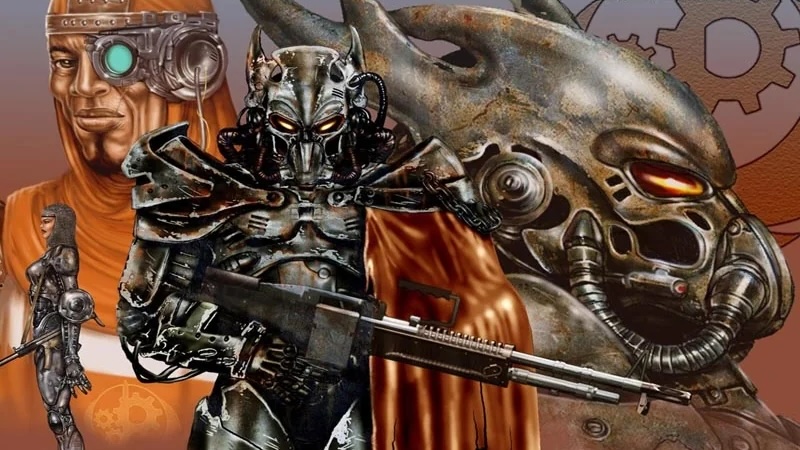Fallout Tactics lead on exploring the 'bigotry' of the Brotherhood of Steel long before Bethesda got there: 'I really enjoyed killing off the nobility of them'
Fallout Tactics had some big ideas even if it didn't make good on all of them.

Almost every Fallout game has its stalwart defenders: People who will swear til they're blue in the face that New Vegas, or 3, or 2, or 1 is the best game in the series and, just maybe, the best game of all time. There's something about the Wasteland that inspires fanatical devotion. Usually.
Fallout Tactics is one of the few games you'd struggle to find a ride-or-die fan for. A combat-focused follow-up to Fallout 2, the game's blend of tactics and RPG elements didn't quite find purchase with fans of either genre. And who knows—maybe Fallout fans bristled at its depiction of the Brotherhood of Steel.
"I really enjoyed killing off the nobility of them," Fallout Tactics lead designer Ed Orman told PCG in a recent interview. In Tactics, players took on the role of a squad of Brotherhood soldiers, giving what was—at that point—one of the deepest looks yet at the faction in the series (though they had featured heavily in both the first and second games, naturally).
"Anybody who gets that level of power through all of their technology and stuff, post-apocalyptically, I don't believe they're going to remain a noble enterprise," says Orman. And besides, he doesn't think the Brotherhood was "really, deep down, all that noble anyway." A key part of Tactics' backstory is a split in the Brotherhood over whether to accept "unpure" recruits: Mutants, ghouls and the like who now inhabit the Wasteland. Some want to expand the membership, others of a slightly more, shall we say, fascist tinge want to keep the ranks as they are.
"[What] we were exploring was basically racism," says Orman. "The bigotry is built into their ethos. In [tabletop RPG] Gamma World there’s this concept of pure strain humans, and I know that concept is in Fallout as well from the Brotherhood's perspective.
"I really liked playing with that. It's the reason I liked the ending where they basically get over it—they get over all of their prejudices and bigotry and accept that survival requires everybody's help."
The Brotherhood weren't straightforward white knights in FO1 or 2, mind, but Tactics asked questions about the ethics of their underlying philosophy long before the split in Fallout 3 or their waning, xenophobic depiction in New Vegas. It was genuinely ahead of its time in that sense, which is easy to forget of a game so under-loved.
The biggest gaming news, reviews and hardware deals
Keep up to date with the most important stories and the best deals, as picked by the PC Gamer team.
"I liked breaking that mould for them," says Orman, "and forcing them to take on new people. I don't know if we stuck the landing, but I really liked that over the course of the campaign, and by the end, one of the good endings is that they become barely the Brotherhood anymore. They are open to everybody at that point, because they realise that's the actual way to survive. It's not just the technology, it's the people. I always liked that note." Friends, I think I might want to give Fallout Tactics another go.

One of Josh's first memories is of playing Quake 2 on the family computer when he was much too young to be doing that, and he's been irreparably game-brained ever since. His writing has been featured in Vice, Fanbyte, and the Financial Times. He'll play pretty much anything, and has written far too much on everything from visual novels to Assassin's Creed. His most profound loves are for CRPGs, immersive sims, and any game whose ambition outstrips its budget. He thinks you're all far too mean about Deus Ex: Invisible War.
- Jeremy PeelContributor

